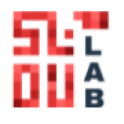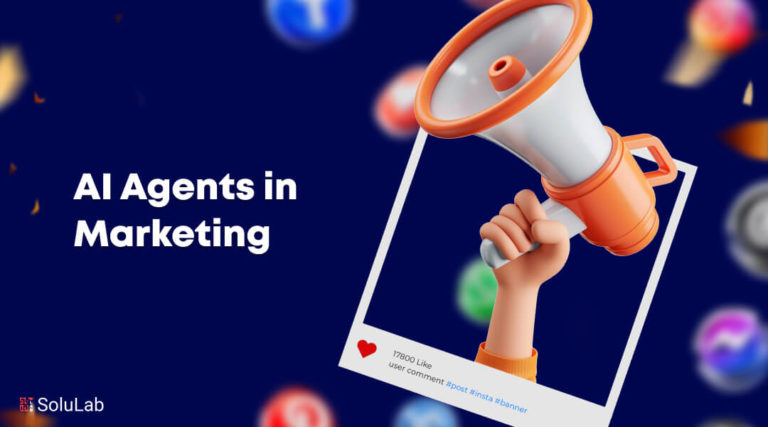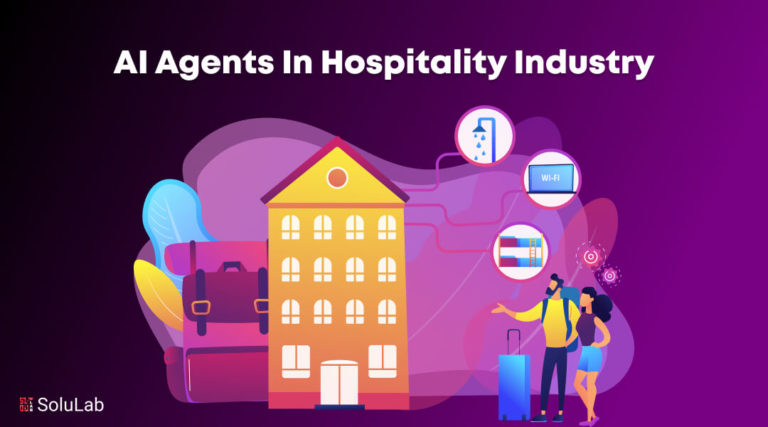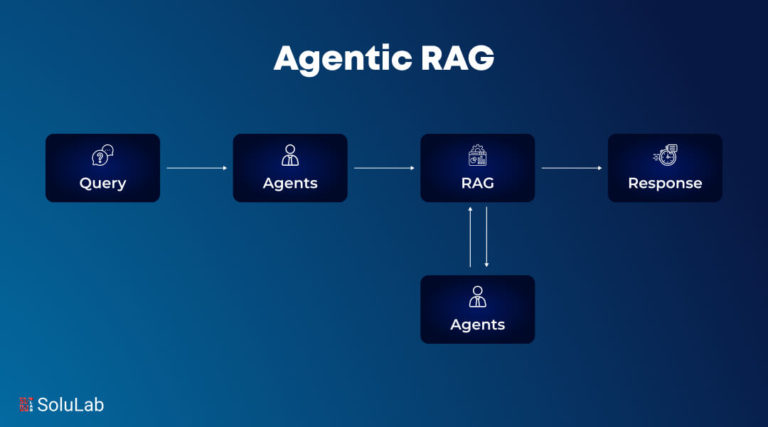
In recent years, the integration of blockchain technology in the healthcare sector has emerged as a transformative force, revolutionizing the way data is managed, shared, and secured. This overview delves into the profound impact of blockchain in healthcare, emphasizing its importance and exploring the dynamic trends shaping its integration. Moreover, we’ll spotlight the top blockchain healthcare companies leading this innovative charge.
Blockchain, originally devised for cryptocurrency transactions, has found a natural home in healthcare due to its intrinsic attributes of transparency, security, and decentralization. In essence, blockchain is a decentralized and distributed ledger technology that ensures the immutability and integrity of data. In healthcare, this translates to a secure and transparent method of managing electronic health records (EHRs), streamlining processes, and enhancing overall data management.
Blockchain’s architecture eliminates the need for a centralized authority, reducing the risk of data breaches and unauthorized access. By creating a decentralized network of nodes, each participant in the healthcare ecosystem can securely access, share, and update patient information. This not only ensures the integrity of health records but also facilitates seamless collaboration among healthcare stakeholders.
The importance of blockchain technology in healthcare lies in its ability to address longstanding challenges within the industry. Security breaches, data fragmentation, and interoperability issues have plagued the healthcare sector for years. Blockchain offers a solution by providing a secure and standardized framework for storing and sharing sensitive medical data.
What are the Emerging Trends in the Integration of Blockchain in Healthcare?
As the healthcare industry continues to evolve, several emerging trends are shaping the integration of blockchain technology:
Interoperability Solutions
Blockchain fosters interoperability by creating a standardized and secure environment for data exchange among different healthcare systems. This trend is essential for ensuring seamless communication between diverse healthcare entities.
Smart Contracts for Healthcare Management
The utilization of smart contracts automates and executes predefined rules within the healthcare ecosystem. This includes processes such as insurance claims, ensuring transparency, and reducing the risk of fraudulent activities.
Tokenization of Healthcare Assets
The tokenization of healthcare assets, such as patient records or research data, enables efficient and secure transactions within the blockchain. This trend is gaining traction as it introduces new possibilities for data monetization and incentivizes data sharing.
What are the Benefits of Blockchain in Healthcare?
Blockchain technology is revolutionizing the healthcare industry by offering numerous benefits that enhance security, transparency, and efficiency. The integration of blockchain in healthcare is gaining momentum, and top blockchain healthcare companies are at the forefront of this transformative journey.
Enhanced Security
Blockchain ensures the highest level of security for healthcare data. Its decentralized and cryptographic nature prevents unauthorized access, tampering, and data breaches. Top blockchain development companies implement robust encryption protocols to safeguard sensitive patient information, establishing a secure foundation for healthcare data management.
Interoperability and Data Sharing
Blockchain facilitates seamless interoperability among different healthcare systems. It enables secure and transparent sharing of patient data across various stakeholders, such as hospitals, clinics, and insurance providers. This interoperability enhances care coordination, reduces errors, and ensures that healthcare professionals have access to comprehensive and up-to-date patient information.
Immutable Record Keeping
The blockchain’s decentralized ledger ensures an immutable record of transactions. In healthcare, this means that once data is recorded on the blockchain, it cannot be altered or deleted. This feature is particularly crucial in maintaining the integrity of patient records, treatment histories, and clinical trials, reducing the risk of fraud, and ensuring the reliability of medical data.
Streamlined Data Management
Healthcare companies using blockchain benefit from streamlined data management processes. Blockchain allows for the creation of smart contracts, automating and executing predefined rules. This reduces administrative overhead, minimizes errors, and accelerates claims processing and billing processes within the healthcare ecosystem.
Patient Empowerment and Control
Blockchain platform empowers patients by giving them greater control over their health data. With blockchain, patients can grant and revoke access to their information, ensuring that only authorized individuals or entities can view their medical records. This transparency enhances patient trust in the healthcare system and fosters a more patient-centric approach to care.
Efficient Clinical Trials
Blockchain facilitates the optimization of clinical trials by providing a transparent and tamper-proof record of trial data. This enhances the credibility of research findings, expedites the sharing of trial results, and accelerates the overall drug development process. Top blockchain healthcare companies leverage this technology to contribute to advancements in medical research and development.
The Top Healthcare Blockchain Companies to Watch in 2024.

1. SoluLab
In the ever-evolving landscape of healthcare technology, SoluLab emerges as a trailblazer among the top blockchain healthcare companies, showcasing innovation, expertise, and a commitment to revolutionizing the industry in 2024. In the dynamic landscape of healthcare technology, SoluLab has positioned itself as a frontrunner among the top blockchain healthcare companies, showcasing innovation, expertise, and a commitment to revolutionizing the industry.
Blockchain technology has proven to be a game-changer in the healthcare sector, addressing issues related to security, transparency, and interoperability. SoluLab, as one of the leading healthcare blockchain companies, has demonstrated unparalleled proficiency in harnessing the power of blockchain to enhance the efficiency and integrity of healthcare systems.

2. BurstIQ’s
BurstIQ’s platform helps blockchain healthcare startups safely and securely manage massive patient data. Its blockchain technology enables the safekeeping, sale, sharing, or license of data while strictly complying with HIPAA rules. The company uses blockchain to improve how medical data is shared and used.
Because BurstIQ’s platform includes complete and up-to-date information about patients’ health and healthcare activity, it could help to root out abuse of opioids or other prescription drugs.
$25-$49
50-249
2008
Colorado Springs, Colorado
Olive AI, FlowMetric

3. Medicalchain
Medicalchain’s blockchain maintains the integrity of health records while establishing a single point of truth. Doctors, hospitals, and laboratories can all request patient information with a record of the origin and protect the patient’s identity from outside sources. Medicalchain’s blockchain-based platform maintains a record of the origin and protects patient identity. In May 2018, Medicalchain announced the release of MyClinic.com. A telemedicine platform, MyClinic enables patients to consult with their doctors via video and pay for those consultations with “MedTokens.”
$55-$90
10-50
2016
London, England
ctronic Health Record, Medical

4. Guardtime
Guardtime is helping blockchain healthcare startups and governments implement blockchain into their cybersecurity methods. The company was vital in helping implement blockchain in Estonia’s healthcare systems, and it recently signed a deal with a private healthcare provider in the United Arab Emirates to bring blockchain to its data privacy systems. Guardtime employs blockchain for cybersecurity applications, including healthcare.
Guardtime recently teamed with Verizon Enterprise Solutions to deploy several platform services based on Guardtime’s Keyless Signature Infrastructure (KSI) Blockchain.
$25-$50
10-250
2007
Irvine, California
Galois, Lockheed Martin

5. Avaneer Health
Avaneer is a new company backed by Aetna, Anthem, and Cleveland Clinic dedicated to using blockchain technology to improve healthcare efficiency, utilizing a public ledger to support better claims processing, secure healthcare data exchanges, and keep provider directories maintained and up-to-date.
The Avaneer network takes a forward-looking approach to keep healthcare data secure and readily available to authorized care providers.
$55-$90
10-49
2017
Illinois, United States
Sentara Healthcare, Anthem, Aetna Ventures

6. Chronicled
Chronicled builds blockchain networks that demonstrate the chain of custody. The networks help pharma companies ensure their medicines arrive efficiently and enable law enforcement to review any suspicious activity — like drug trafficking. 2017 Chronicled created the Mediledger Project, a ledger system dedicated to medical supply chains' safety, privacy, and efficiency.
The Chronicle blockchain network ensures the safe arrival and detailed review of drug shipments.
$55-$90
10-49
2014
San Francisco, CA
Abbvie, Genentech

7. Robomed
Robomed combines AI and blockchain to offer patients a single point of care. The company deploys chatbots, wearable diagnostic tools, and telemedicine sessions to gather patient information and share it with the patient’s medical team. Robomeds Panacea platform engages patients into smart contracts that incentivize and lead them toward better health Robomed uses blockchain to securely gather patient information and share it with a patient’s healthcare providers.
$55-$99
11-50
2011
Moscow, Russia
N/A

8. Patientory
Patientory’s end-to-end encryption ensures patient data is shared safely and efficiently. The platform enables patients, healthcare providers, and clinicians to access, store, and transfer all important information via blockchain. Patientory helps the healthcare industry to move more quickly by housing all patient information under one roof. Patientory’s blockchain platform enables the secure storage and transfer of important medical information.
$25-$50
10-49
2016
Georgia, USA
N/A

9. Doc.ai
Doc.ai uses machine intelligence, like AI, to decentralize medicine on the blockchain. Users can opt into the company’s platform to share their medical and genomic data with a community of scientists that use the data for predictive modeling. doc.ai saves no patient data. Once information is uploaded, encrypted on a blockchain, and used in a trial, the data is wiped out to ensure security and privacy. The company employs machine intelligence (like AI) to decentralize medical data on the blockchain.
$25-$50
51-100
2016
California, USA
N/A

10. Encrypgen
The EncrypGen Gene-Chain is a blockchain-backed platform that facilitates searching, sharing, storing, buying, and selling genetic information. The company protects its users’ privacy by allowing only other members to purchase genetic information using safe, traceable DNA tokens. Member companies can use genetic information to build upon their genetic knowledge and advance the industry. The company’s blockchain platform makes searching for, sharing, storing, and buying genetic information easier.
$25-$50
10-50
2015
Florida, USA
N/A
Conclusion
In conclusion, as we navigate the dynamic landscape of healthcare technology, the prominence of blockchain in revolutionizing the industry cannot be overstated. The top blockchain healthcare companies are at the forefront of this transformative wave, pioneering innovative solutions that enhance security, transparency, and efficiency in healthcare systems.
Among these trailblazers, SoluLab as a blockchain development company stands out as a key player, consistently delivering cutting-edge blockchain solutions tailored to the unique demands of the healthcare sector. Their commitment to advancing the integration of blockchain in healthcare has positioned them as a trusted partner for companies seeking to optimize their operations and ensure the integrity of sensitive health data.
The evolution of blockchain in healthcare is marked by the remarkable contributions of companies dedicated to harnessing its potential. From streamlining data interoperability to ensuring the integrity of electronic health records, these healthcare blockchain companies are driving tangible improvements in patient care and overall system efficacy.
In the years ahead, the collaboration between innovative enterprises and the healthcare industry is poised to bring about unprecedented advancements, with blockchain technology serving as a cornerstone for transformative change. As stakeholders increasingly recognize the value of blockchain in healthcare, SoluLab will continue to play a pivotal role in shaping the future of this dynamic and vital sector.

FAQs
1. What are the key advantages of utilizing blockchain in healthcare?
Blockchain in healthcare ensures secure and transparent data sharing, enabling enhanced interoperability among various healthcare entities. It enhances data integrity by providing an immutable and decentralized ledger, reducing the risk of tampering and unauthorized access.
2. Which healthcare companies are leading the way in implementing blockchain technology?
Notable healthcare blockchain companies in 2024 include IBM Watson Health, Change Healthcare, and Guardtime. These companies are at the forefront of leveraging blockchain for data security, interoperability, and streamlined healthcare processes.
3. How does blockchain improve data security in the healthcare sector?
Blockchain employs cryptographic techniques to secure health records, ensuring that sensitive patient information is protected from unauthorized access. The decentralized nature of blockchain reduces the vulnerability of a single point of failure, making it more resilient against cyber threats.
4. Can you provide examples of healthcare companies using blockchain for supply chain management?
Companies like Hashed Health are utilizing blockchain to enhance transparency and traceability in pharmaceutical supply chains, reducing the risk of counterfeit drugs. Chronicled and IBM are also notable for their efforts in using blockchain to optimize the healthcare supply chain.
5. How does blockchain contribute to improved interoperability among healthcare systems?
Blockchain facilitates seamless data exchange among different healthcare providers, promoting interoperability and ensuring a more comprehensive view of patient health history. Healthcare blockchain companies like Chronicled and Hashed Health are actively working towards creating standardized blockchain ecosystem protocols for data sharing.
6. Are there any emerging blockchain healthcare companies making significant strides in 2024?
Yes, companies like SimplyVital Health and Factom are gaining recognition for their innovative approaches to leveraging blockchain for healthcare data management. These emerging players are introducing novel solutions to address the evolving needs of the healthcare industry.




